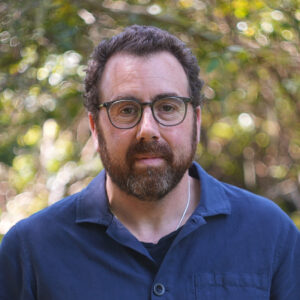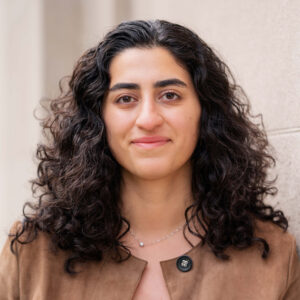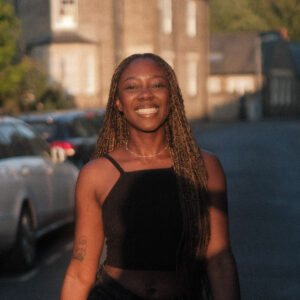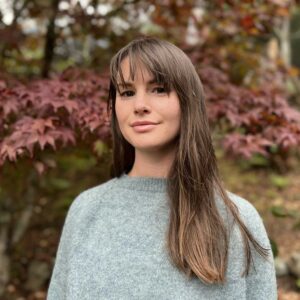
Seeds of Radical Renewal: A hybrid in-person & online leadership course (US)
Whidbey Institute, Washington, US

Beneath the fragmenting face of our world, the seeds of change and connection that will bear new ways of being are beginning to take root. If we are to usher in a story different from the narrative of progress, colonization, and unlimited economic growth that has unleashed destruction across the planet, a radical renewal of our relationship with the Earth and each other is needed. What does it mean to lead amid the turmoil of our ecological unraveling from a place that centers the Earth not as an abstract idea, but as a living presence? How can we be in service to this transition that will demand and inflict profound transformation upon our inner and outer worlds?
To avoid replicating the systems of power that have so damaged the Earth and its beings, we must move beyond the conventional, patriarchal ideas of authority and action that continue to fail us, and into new models of leadership anchored in kinship and care; that stem not only from doing, but also from a state of being.
In what ways can we respond to the social and ecological challenges of our time from a space of connection, rather than looking for quick fixes and following familiar authority? Can we listen to voices and intelligences outside our own, share power in community, learn to relinquish certainty, and be receptive to change? How do we find and begin to work with the roots that will hold us steadfast through the unraveling of our world?
For the first time, we are offering our Seeds of Radical Renewal leadership course as an online and in-person hybrid, facilitating a deeper immersion into the practical application of spiritual ecology and adaptive leadership. This course will introduce emerging leaders to the values of renewal, reciprocity, and reverence in building relationships with human and more-than-human communities and offer mentoring on applying those values to real-world projects.
With the guidance of guest teachers—Emmanuel Vaughan-Lee, Joycelyn Longdon, Dana Karout, Sam Lee, and James Bridle—participants will take part in a six-part online workshop exploring the philosophy and possibilities of spiritual ecology, culminating in a four-day in-person retreat at Whidbey Institute in Washington State, US.
COURSE STRUCTURE
The program will commence with a six-part online Zoom course, convening weekly for two hours and led by guest teachers. During these sessions, participants will take part in facilitated discussion and personal reflections through writing prompts, guided exercises, and storytelling. Supported by required and optional reading and writing assignments, the online portion of the course is designed to provide the foundational and theoretical teachings of spiritual ecology and adaptive leadership.
Between online sessions, there will be optional, self-facilitated “virtual tea meet-ups” scheduled for every other week on Sundays from 10 to 11am (Pacific). These sessions are available for those who would like to go deeper in discussing the teachings from the course and/or workshop a current project.
The course will culminate in a four-day in-person retreat at the Whidbey Institute in Washington State, US, where we will build upon the teachings and discussions from the online sessions, bringing them into experiential learning through nature immersion practices, workshopping sessions, mentoring, and discussions led by guest teachers Emmanuel Vaughan-Lee, Joycelyn Longdon, and Sam Lee; with guidance from facilitators Dana Karout and Devin Tellatin.
Bridging the theoretical and experiential approaches in the course, an adaptive leadership framework will be used as a central tool to explore the practical application of leadership amid the challenges and uncertainty of our time.
MODULES & GUEST TEACHERS
Leading from Our Roots
with Joycelyn Longdon
Online and in-person
The word “radical” is from the Latin radix, meaning root. More than ever, the radical actions needed at this time are those rooted in creative, caring, connected ways of being. How can embodying our collective grief for all that is being lost offer an opportunity to transform our relationships with each other and the living world? What are the roots that can ground us through our moment of rapid change—both ancient roots that have been preserved by communities intimately connected with the land, and new ones that recenter the living world in our ecological innovations? This module will explore how we can lead from these rooted spaces amid ongoing narratives of colonialism and capitalism, building new cultural infrastructures that revolve around collective wisdom, love, and kinship.
Listening to What Lies Beyond the Human
with Emmanuel Vaughan-Lee
Online and in-person
The voice of the Earth is inaudible against the overwhelming sound of our own. Rather than tuning in to the myriad more-than-human voices that call, sing, and offer wisdom around us, we often find ourselves in perpetual conversation with only ourselves. Through cultivating a way of listening beyond the outer senses—a listening with our bodies, hearts, and intuition—we can step into a space of relationality with the many voices that speak to us. How can we unlearn what we have been taught about successful leadership and reorient it toward listening? How can we step away from our own voices and learn to truly hear what is being said in both the living world around us and a deeper space within ourselves? What transforms within our ways of being when listening becomes the first action we instinctively reach for?
Adaptive Leadership for Our Current Crisis
with Dana Karout
Online and in-person
When faced with complex challenges, we often automatically turn to technical fixes. For example, we generate reports, make committees, employ new technology, or hire consultants, many times avoiding addressing the underlying issues that are at the heart of a problem. However, the unraveling of our ecological, social, and cultural spheres requires an adaptive response that delves beyond quick problem-solving responses and into imagining and understanding the web of stories, assumptions, values, and behaviors that shape our relationship with the Earth and each other. How can we approach leadership and generate responses to our challenges from a place that is relational and able to hold multiple perspectives? Instead of operating just at our level of authority, how can we go to the root causes of our crises? This module will ground participants in a Harvard-developed adaptive leadership framework, providing guidance on the practical application of creative, mutual leadership that looks towards how we can better distribute agency, listen to the more-than-human world, and rebuild trust in community.
The Role of Art and Creativity in Leadership
with Sam Lee
In-person only*
How can we bring rooted models of leadership into living spaces? What role does storytelling, art, and creativity play in facilitating connection between individuals, communities, and the Earth? How can we open the kinships we hold with the living world to help shift perspective and generate love for the living world? This module will explore the interface of art, activism, and relational spaces in leadership, and the ways we can turn to the living world as a teacher and turner of hearts. Drawing on Sam’s own work with “singing with the nightingales,” we will explore how love, enchantment, and creative practice can offer ways of being in relationship with the living world.
Including Multiple Forms of Intelligence
with James Bridle
Online only*
To seed a just future for all living beings, we need an inclusive, decentralized politics, built upon the deep connections we share with the Earth. When we turn our attention to the living world, and the many kinds of intelligences it holds, we find myriad examples of an embodied knowledge of place and models for nonbinary, shared approaches to leadership. How can we learn to build relationships with the living world that broaden our narrow assumptions of what leadership can be, dismantling our ideas around hierarchy and power? What might leadership look like when the agency of nonhuman beings is acknowledged? Rather than an extractive force, how could technology be a tool of connection with the intelligences of the living world? Rather than listening to one voice, how can we listen to communal wisdom?
SCHEDULE
Online
| Date | Time |
|---|---|
| Introduction | Wednesday, August 6th, 10am-12pm (PDT) |
| Emmanuel Vaughan-Lee | Wednesday, August 13th, 10am-12pm (PDT) |
| Virtual Tea Meet-up (Optional*) | Sunday, August 17th, 10am-11am (PDT) |
| Dana Karout, Adaptive Leadership, Part 1 | Wednesday, August 20th, 10am-12pm (PDT) |
| Dana Karout, Adaptive Leadership, Part 2 | Wednesday, August 27th, 10am-12pm (PDT) |
| Virtual Tea Meet-up (Optional*) | Sunday, August 31st, 10am-11am (PDT) |
| James Bridle | Wednesday, September 3rd, 10am-12pm (PDT) |
| Joycelyn Longdon | Wednesday, September 10th, 10am-12pm (PDT) |
| Virtual Tea Meet-up (Optional*) | Sunday, September 21, 10am-11am (PDT) |
In-person
| Date | Time |
|---|---|
| Day 1 | September 25th, 2025 (Check-in 4-6pm) |
| Day 2 | September 26th, 2025 |
| Day 3 | September 27th, 2025 |
| Day 4 | September 28th, 2025 (Check-out at 12pm) |
COURSE FEE
The course fee ranges from $1450 to $1300 USD depending on accommodation choice (single or shared room) and covers the cost of tuition, on-site lodging, and meals. Participants are required to arrange and pay for their own travel to and from the Whidbey Institute.
Some partial scholarships for tuition are available for those who need them. We are unable to offer any financial support for travel. If you are accepted into the course, payment is due within one month of acceptance, by April 14th. Cancellations made up to one month before the online course commences will result in a full refund. After that, refunds will not be available.
APPLICATION
The application deadline is February 28th, 2025, at 11:59pm (PST). Applicants will be notified of acceptance by March 14th, 2025.
To be eligible for this course, participants must be able to attend both the online and the in-person components.
We are also offering a UK-iteration of this course with the online portion from April 30th to June 4th, 2025 (10am–12pm PDT) and the in-person portion from June 18 to 21, 2025 at Sharpham Trust in Devon, England. Learn more and apply for the UK course here.
INSTRUCTOR & FACILITATOR BIOS

Emmanuel Vaughan-Lee
Guest teacher (online & in-person)
Emmanuel Vaughan-Lee is an Emmy- and Peabody Award–nominated filmmaker and a Naqshbandi Sufi teacher. His films include Earthrise, Sanctuaries of Silence, The Atomic Tree, Counter Mapping, Marie’s Dictionary, and Elemental. Emmanuel’s films have screened at NYFF, Tribeca Film Festival, SXSW, and Hot Docs; exhibited at the Smithsonian Museum and the Barbican; and featured on PBS POV, National Geographic, New York Times Op-Docs, The New Yorker, and The Atlantic. He is the founder and executive editor of Emergence Magazine. He lives and teaches in Inverness, California.

Dana Karout
Guest teacher (online) & facilitator (in-person)
Dana Karout is a leadership trainer and researcher working at Harvard and across the US and the Middle East, who teaches and coaches based on the principles and practices of adaptive leadership. Her work aims to build the capacity of individuals and communities to hold conflict and navigate complexity across various levels of authority. She holds a Bachelors of Engineering from the American University of Beirut, a Masters in Public Policy from the Harvard Kennedy School, and is an incoming PhD candidate at UC Berkeley, where she will research the pedagogical and theoretical implications of generative AI.

Joycelyn Longdon
Guest teacher (online & in-person)
Joycelyn Longdon is an environmental justice advocate and academic. Her PhD research centers on the design of justice-led conservation technologies for monitoring biodiversity with local forest communities in Ghana. She is also the founder of ClimateInColour, an online education platform and community for the climate curious, making climate conversations more accessible, diverse, and hopeful.

Sam Lee
Guest teacher (in-person)
Sam Lee is an award-winning folk singer, writer, conservationist, song collector, and activist. He has released three critically acclaimed albums: Ground of Its Own, nominated for the Mercury Prize Album of the Year in 2012; The Fade In Time, which earned a Songlines Award for Artist of the Year in 2015; and most recently, Old Wow. He is the author of The Nightingale: Notes on a Songbird; creator of “Singing with Nightingales,” an annual springtime concert series; and a founding member of both Music Declares Emergency and The Nest Collective, which brings people together to rekindle connections with nature, tradition, and community.

James Bridle
Guest teacher (online)
James Bridle is a writer, artist, and technologist whose artworks have been commissioned by galleries and institutions and exhibited worldwide. Author of New Dark Age and Ways of Being, their writing on literature, culture, and networks has appeared in magazines and newspapers, including Wired, The Atlantic, The New Statesman, The Guardian, and The Financial Times. For BBC Radio 4, they wrote and presented the four-part series “New Ways of Seeing.”

Devin Tellatin
Facilitator (online & in-person)
Devin Tellatin is a staff film producer and the programs and event manager at Emergence Magazine. She was part of Kalliopeia Foundation’s inaugural 2016 Spiritual Ecology Fellowship, and has worked at Emergence since the magazine launch in 2018. She holds a masters degree in International Affairs from The New School in New York City. Prior to joining Emergence, Devin worked in the realm of international development policy at the United Nations where she campaigned for the inclusion of progressive policies that place the living world and voices from the Global South at the center. She is passionate about working with emerging leaders and building creative learning spaces that enables us to reexamine our relationship with the more-than-human world and seed the foundations for ecological, cultural, and spiritual renewal.
Please reach out to events@emergencemagazine.org with any questions.